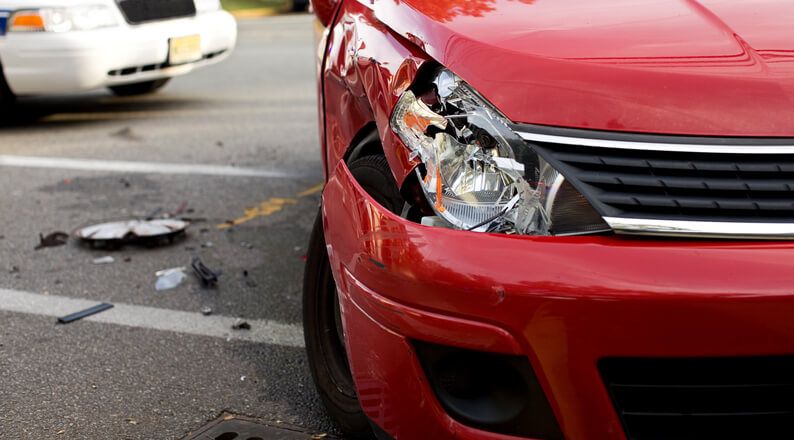Property coverage: comprehensive and collision
Property coverage falls into two categories -- comprehensive and collision.
Collision
Collision coverage applies when your car hits or is hit by another vehicle or object. It covers the damage to your own car after the amount of your deductible.
Comprehensive
Comprehensive coverage is also known as "other than collision." It covers other mishaps that can damage your vehicle, such as:
- Floods
- Fires
- Animals
- Falling objects
Selecting your coverage amounts
Your collision and comprehensive premiums are based on the value of your car and the deductible you choose. Typical deductibles range from $250 to $1,000. A higher deductible usually means lower premiums, but the tradeoff is that you'll have to pay more out of pocket if something happens.
Having collision and comprehensive coverage is not required by law, but if you have an auto loan or are leasing, the contract usually requires you to carry them. Owners of paid-off older cars who can afford to pay cash to replace their cars sometimes forgo collision and comprehensive coverage to lower their premiums.
To decide whether to carry coverage and your deductible amount, consider the following:
- Requirements of your lender
- Your available cash
- Your vehicle's value
- Your own risk tolerance
Liability and medical coverage
Liability and medical coverage is broken up into several categories. Most states require a certain amount of coverage in each category.
It is typically prudent to carry a higher amount of coverage in case you are involved in a serious accident and determined to be at fault. This will prevent a judgment against your home or other personal assets.
Bodily injury liability (BI)
Bodily injury coverage covers injuries you cause to another person in an accident. Covered expenses include medical bills, loss of income, and pain and suffering.
This coverage is typically mandatory. However, the legal minimums are often far less than the actual expenses caused by even relatively minor accidents.
Property damage liability (PD)
Property damage coverage covers the damage you cause to another person's property. This may be their vehicle, a fence, a telephone pole or a building you crash into.
When selecting your coverage amount, you should consider not only your own vehicle's value but also the value of the vehicles on the road around you, since it's the other driver's vehicle that this coverage covers.
Medical payments (MP) or personal injury protection (PIP)
Medical payments and personal injury protection cover medical expenses for you and your passengers following an accident. Depending on your policy, coverage may also apply when you're riding in someone else's vehicle or if you're hit by a car while walking or riding a bike.
MP and PIP are no-fault coverage designed to provide a relatively quick payment and supplement your own personal health insurance. If you have good health coverage with a low deductible and few exclusions, you may wish to opt out of or reduce this coverage.
Talk to TDECU Insurance Agency
With today's medical costs, an auto accident can quickly rack up tens or even hundreds of thousands of dollars in expenses. To make sure you and your family are fully covered, talk to TDECU Insurance today.
